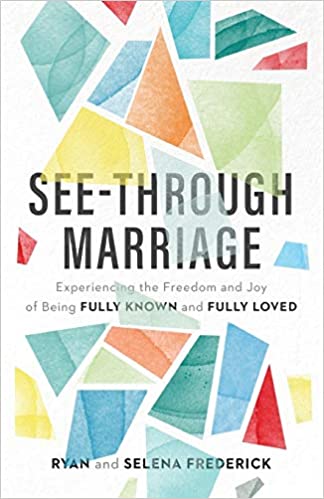Often the battleground for our new life in Christ is evidenced in our desires. What do we want from our marriage and/or from our spouse? Why do we want it? What are we willing to do to get it? Is it a godly pursuit?
Maybe you want a less turbulent marriage, a more secure financial situation, or a spouse you can actually connect with. Not all desires are bad, but they become divisive and troublesome when we begin finding our identity and worth in them instead of in Jesus.
In Galatians 5, Paul talks about the desires of the flesh versus the desires of the Spirit, and how they are opposed to one another (v. 17). The first pursues selfish/worldly passions that ultimately enslave us and lead us to death. The latter can only be born of the Holy Spirit—leading us to freedom and producing in us fruit that is evidence of the Spirit at work in our lives. The spiritual desires center on freedom and life, whereas fleshly desires lead us to death through sin.
What do we want from our marriage and/or from our spouse?
In terms of marriage and desires, it can feel like there is a lot of gray—meaning sometimes each of us may want something that seems good, right, and arguably spiritual, but if we boil it down and get to the “why” behind a desire, the real answer is often selfishness. Instead of giving of our time, energy, and resources to our spouse, we negotiate an exchange: If I give him this, then he will owe/give me that.
We have to bravely seek out the root of our desire, asking ourselves (and each other) the hard questions and filtering through whether what we want is of the flesh or of the Spirit, because it’s not always obvious.
Discerning our desires should be a regular part of our daily walk with Jesus, as they are a constant reflection of who we’re serving and worshiping. Either they will build unity, support our family vision and mission, and make financial sense as well as time and energy-sense, or they will strain each of these and become what I like to call divisive desires.
The serpent deceived Eve by questioning her first about God and his desires for her. Second, he questioned her identity—thus creating in her a divisive desire to be more like God (Gen. 3:5).
Interestingly enough, she was more like God prior to disobeying him than she would ever be after. This passage lays out two filters to help us identify divisive desires in our hearts that would affect our marriages and keep us hidden and living our lives in darkness rather than putting on our new selves and living in the light.
Filter 1: Does this desire question God’s character and intentions?
When what we want goes against God’s commands and instructions for how he calls us to live, obviously red flags will and should go up.
What about the good things? Like wanting a less turbulent marriage or a more transparent marriage? Or for our spouse to know Jesus the way we know him? Is it bad to desire those things? Absolutely not, and we should be praying those prayers. The problems come when we try to take control of the situation in ways God never intended us to.
Other times we get so caught up in the justification of our desire that we don’t stop to think and discover whether this desire is causing us to question God’s character and intentions. If it is, how?
A desire for peace and joy within your marriage is good, but when we idolize those things rather than trusting in the goodness and sovereignty of God’s character, those desires become divisive.
We were never promised a problem-free marriage, but we were promised God’s presence and a Helper. It’s in weakness and hardship that God is put on display in our lives. It’s in the hardships that Christ’s sufficiency is called to the front, and we are lovingly reminded to depend on him, to not lean on ourselves but to rest in him.
Embracing a see-through marriage means embracing all of this: the good, the bad, and the ugly. It means trusting God. When we step out and bring our desires into the light and to our spouse, we can bring them with an open hand and confidence, knowing our marriage covenant can handle hard conversations.
Filter 2: Does this desire cause us to question our identity in Christ?
The second filter we can use to help us decipher if a desire is divisive is if it questions our identity in Jesus. This filter takes more effort and requires a bit more digging into the motivation behind the desire.
Like Eve, we are accepted, valued, loved, and created in God’s image, but our desires can blind us or cause us to question who we are in Christ. We forget who our identity is anchored in because our insecurities flare up when we fail, feel like we don’t measure up, or are feeling unloved.
One way we can continually remind ourselves of who we are in Christ is through our daily exercise of digging through Scripture, memorizing it, and reading volumes of it to help “set [our] minds on things that are above, not on things that are on earth” (Col. 3:2).
Scripture helps us filter through the desires of our hearts and challenges the lies we might be believing about those desires. By knowing God through his Word, we become better at deciphering divisive desires that would cause strain on our marriage.
Living a see-through life means living a life of unity and oneness with our spouse. Divisive desires would keep us enslaved, hidden, alone, and living in darkness. But God desires more for us, which will require more from us. He may ask us to do hard things and to face those areas in our marriage we would rather ignore and hide.
Romans 8 teaches us that because of Christ’s life, death, and resurrection, we no longer have to live according to the flesh: enslaved by earthly desires and in fear of what others might think. Christ’s Spirit within us enables us for life (Rom. 8:11) and all that God calls us to—even living a life that is see-through.
The more we know God and are unified with him, the better we can be at loving our spouse wholly and sacrificially. All of which lead us to living transparently and in the light with each other because of Jesus.
Adapted from See-Through Marriage by Ryan and Selena Frederick. Copyright © 2020 Baker Books, a division of Baker Publishing Group Used by Permission.












